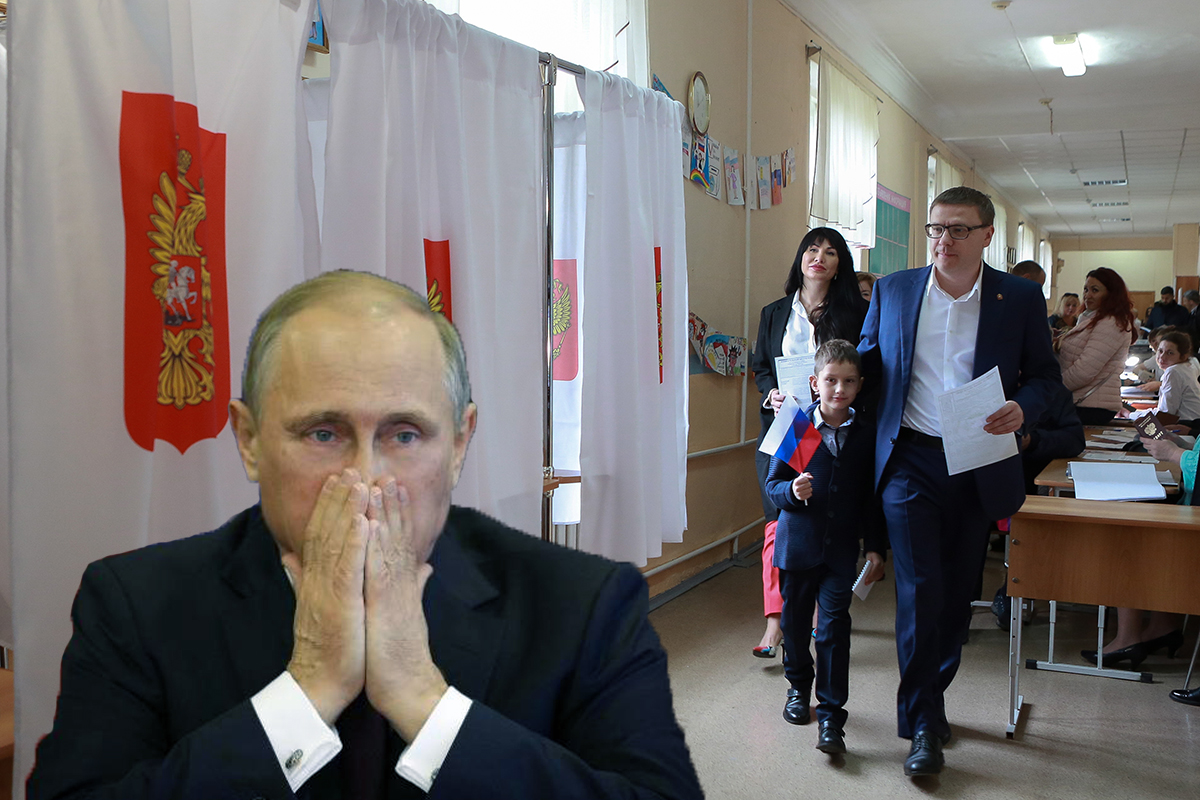Last weekend a single voting day took place in Russia in Moscow and more than 10 subjects of the Russian Federation that elected deputies to the local parliament, governors in 16 republics and mayors of 3 cities. In the Moscow City Duma, most of the deputies were from the so-called "systemic opposition" - somehow connected with the authorities - the CPRF, Just Russia, and Yabloko. The Kremlin's proxies and supporters have also won on the ground. Since mid-July, Moscow has been holding rallies because the CEC prevented liberal independent candidates from running for Moscow City Duma, many of whom are supporters of Alexei Navalny. In order to pass the so-called "municipal filter", a candidate for the Duma must collect signatures of local residents, but they were found to be fake, thus banning the candidates from running. As a result of the protests, more than 200 people were detained, 5 people received 3-4 years in the colony because of the harm done to the police (touched the helmet, grabbed the hand, threw the ballot box in the direction of law enforcement officers). Law enforcement officers violently dispersed the rallies.
There is no alternative political force in Russia that could unite the protest moods, and the current government, through its brutal use of force, can provoke protesters to use firearms.
This idea was expressed to Apostrophe by Ilya Ponomarev, a Russian politician and former Duma deputy.
From the point of view of the results, the elections showed that there is a lot of discontent. But there is no alternative that would concentrate this discontent on itself. Even Moscow, which is more inclined to support people like Alexei Navalny or Dmitry Gudkov, does not see a clear alternative in them. Therefore, the main beneficiary of these elections is the so-called systemic opposition, that is quite conditional. The authorities are not afraid of this fact. Previously, there were 40 of 45 members of United Russia party in the Moscow City Duma, but now there will be 25 of 45. The CPRF's representation will increase the number to 13 people. I don't think this is something catastrophic. But this is an important indicator that shows it is possible to create a new political force and use it to bring down this regime. But the fact that the CPRF's main beneficiary is the CPRF suggests that this political force should not be neo-liberal, not right-liberal, as most of the non-systemic opposition, but left-wing. Then it will be effective and successful.
The results of the Moscow elections show that the authorities chose from two evils. They understood that they were swaying public discontent. But if they do not put those people who are alternative, it will be much worse, because they will definitely get into the Moscow City Duma. That's why there were such tough actions.
Competition between pro-government elites is going on, but the Kremlin strictly controls it. If it raises the rating of the United Russia party, the Kremlin supports it. For example, in Irkutsk Oblast, United Russia has performed well, despite the fact that it has a communist governor. And in Novosibirsk, where the protest took place, the governor was convicted.
For minor violations, such as touching a policeman's helmet or seizing his wrist, people were given 3-4 years in a general regime colony. Such tough decisions were taken precisely to avoid "the same thing as in Ukraine". They want to put a barrier to resistance to police officers in advance. Ukraine did not have such a strict barrier in the beginning. In Russia, law enforcement officers are watching the rallies with drones, and there are high-resolution cameras on the streets to identify the person. There is a ban on wearing a scarf, and it is impossible to pull a balaclava during the rally. But with these actions, the authorities will ensure that people will just start shooting at the police directly.
At the Moscow City Duma elections, the turnout was only 20%. This means that people did not believe in change and the most part stayed at home. People come, when they understand what they are taking risks for and for whom. If in case of victory there will be a desired result. People went to Maidan when there was a clear choice - in 2004 between personalities, between Yanukovych's team and the "orange" team, and in 2014 - when there was a choice between the European orientation and the Eurasian, pro-Russian orientation. There was a clear choice and people came out to say their word. In Russia at the moment there is simply no such thing. The only clear choice is between Putinism and Yeltsinism (the political system of the early 1990s, which is associated with the first Russian President Boris Yeltsin. - Apostrophe). In this case, the majority chooses Putinism. If there was something else, something normal - freedom, democracy, prosperity - they would choose it.


